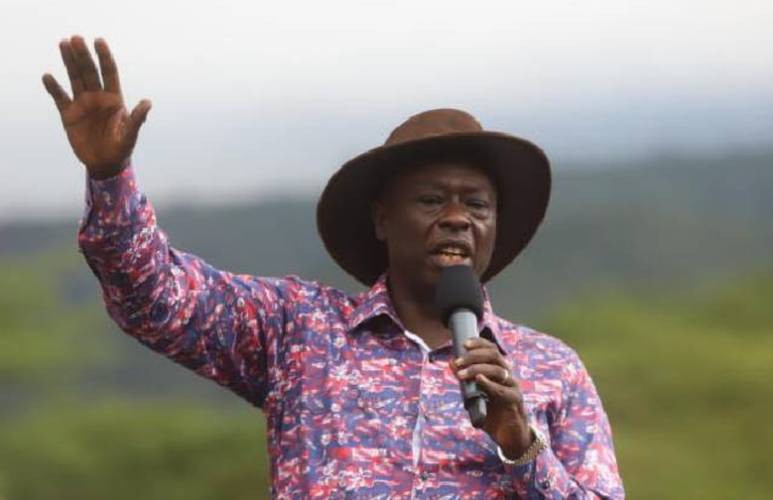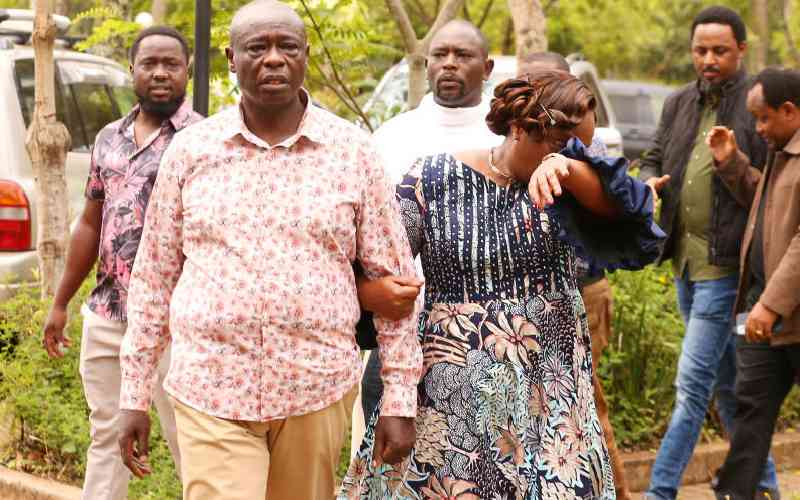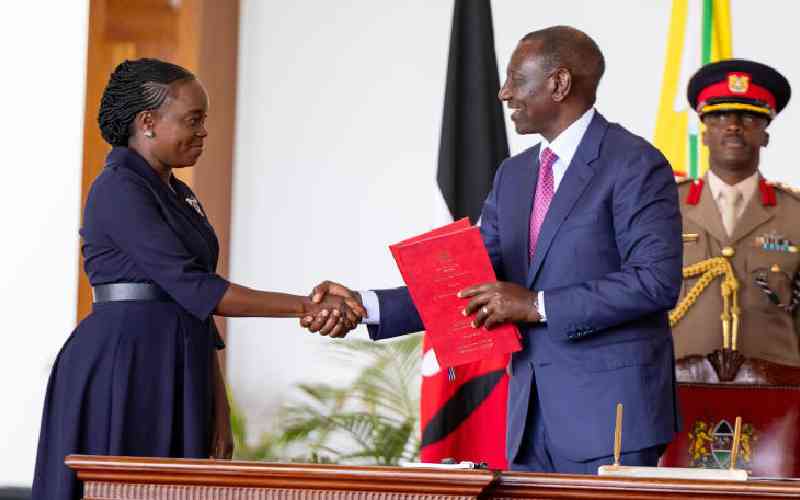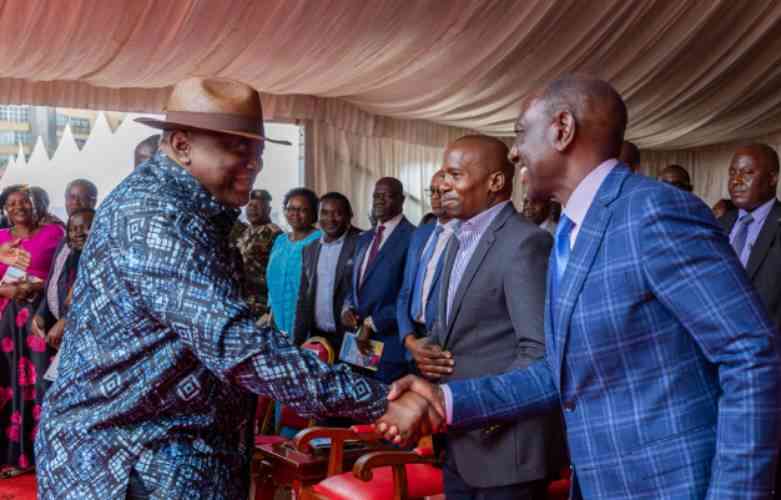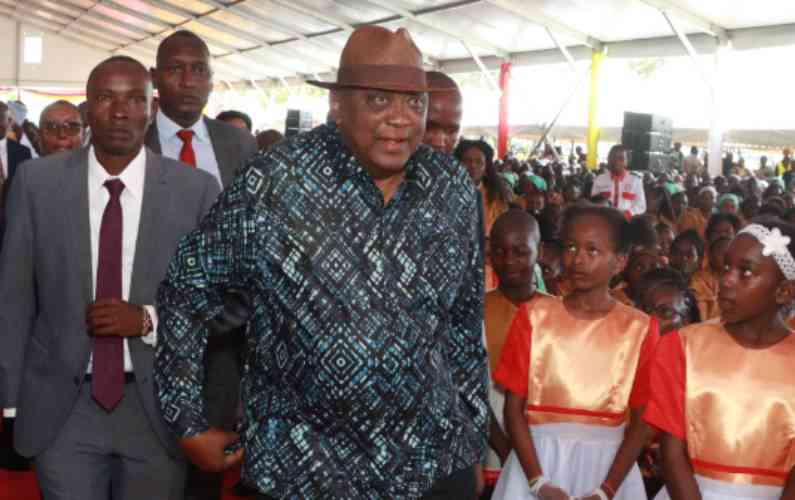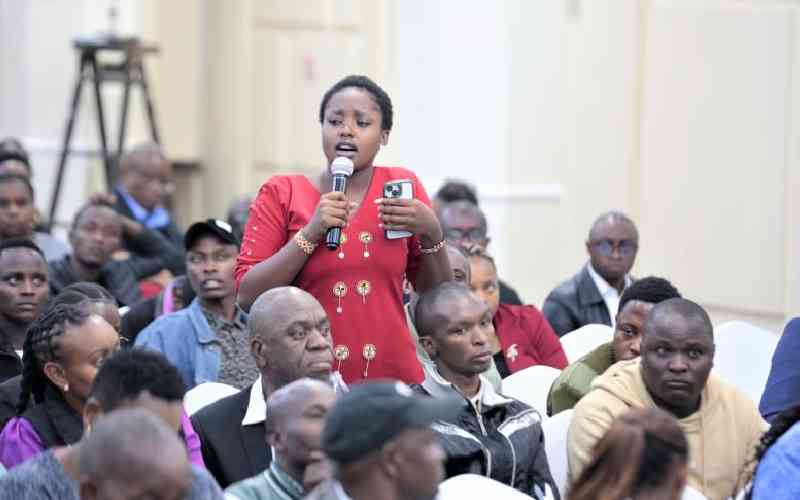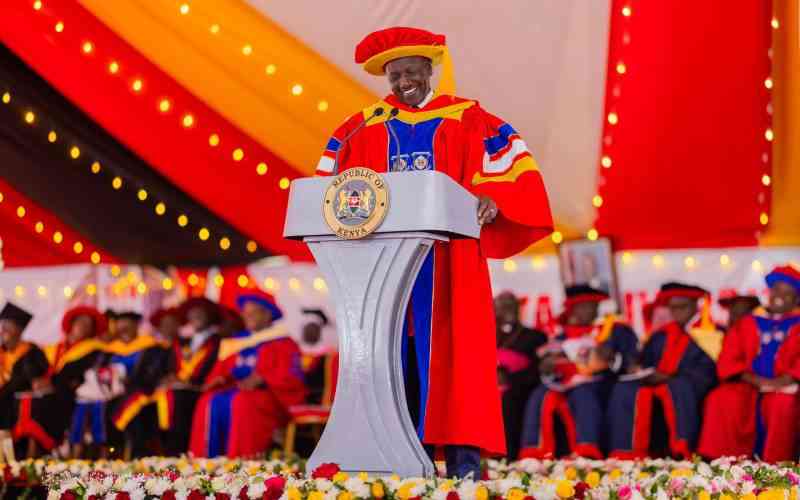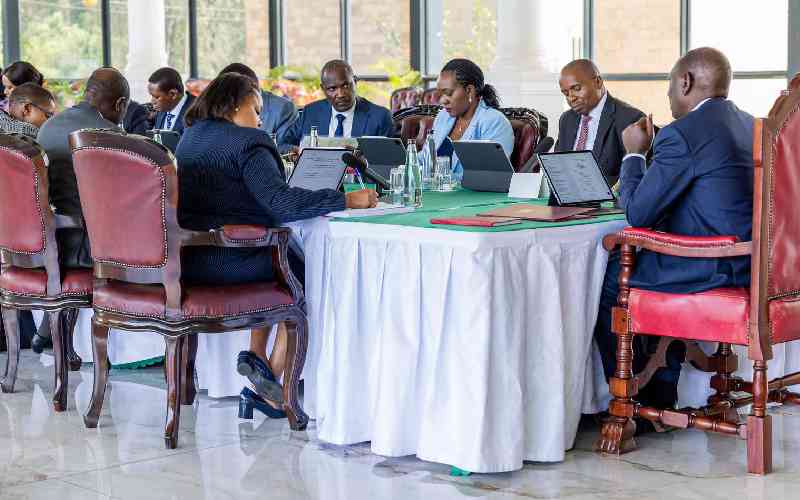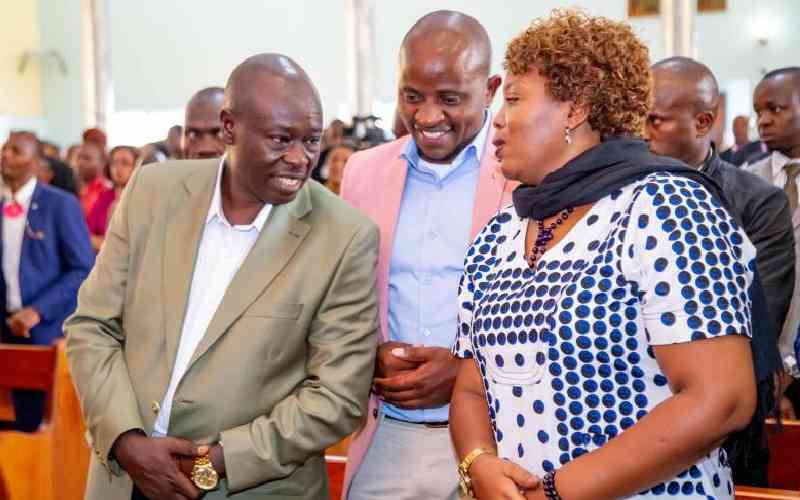
President William Ruto’s second State of the Nation address appeared to strike a new chord from his past pronouncements, striving to portray himself as a listening president.
On Thursday, the President appeared to champion human rights, condemning extra-judicial killings perpetuated by police officers, noting that he had no intent to justify or excuse illegal arrests saying “such would be serious threats to the life and liberty of citizens.”
On June 30, however, the President brushed off any wrongdoing by security agents as he defended his administration against accusations of committing ills against Kenyans following the killing of more than 20 people during protests.
In a media conference at State House, Ruto said his administration operated within the law. He reiterated that he was running a responsible government.
“I have kept my promise that there will be no extra-judicial killings in Kenya,” the Head of State said in June and emphasized that his government was committed to upholding the law.
Fake news
He recently denied reported cases of abduction and allayed concerns of people being held incommunicado, claiming that anyone arrested during protests was detained at police stations, adding that those who died would be accounted for.
- Ruto remains mute as healthcare crisis worsens
- Government calls on KMPDU to end strike
- Ruto meets KMPDU officials, promises lasting solutions to end industrial strikes
- Ruto forms a 20-member team to audit healthcare resources
Keep Reading
“I did promise the country that there will be no extra-judicial killing going forward; and ever since I came into office, there has not been one incident of extra-judicial killing. What you said about abductions are statements attributed to our civil society groups. But all the people they mentioned have since been found in police custody and those that were already processed were already released,” he said.
While addressing the issue of disappearances of people during the protests, the President, in his State of the Nation Address, told the country that a number of the cases had been solved “while others have been uncovered as fake news, undermining efforts to find genuine cases of missing persons.
“A good number of alleged disappearances have also turned out to be arrests made by police officers, and in such cases, the suspects have been duly arraigned in court,” Dr Ruto said, urging those with information to forward it to the Directorate of Criminal Investigations and the Independent Policing Oversight Authority.
This was in contrast to his earlier stance on and defence for the men in uniform where he commended them pointing out that “they on the whole acted professionally in very difficult circumstances” and lauded them for doing a “good job of protecting the country from anarchists.”
Responding to questions about the conduct of his administration during the protests in a media interview in June, the President said:
“I have no blood on my hands”
Dropping cases
Hussein Khalid, a human rights advocate from Vocal Africa, described the President’s remarks as underwhelming and way off base saying:
“It shouldn’t be lost on Kenyans what the President just admitted, albeit indirectly, acknowledged that the police are involved in the abductions and disappearances. Yet, instead of concrete solutions, we were served the usual cover-up rhetoric,” Khalid said.
The tough-talking President on Thursday blasted the Director of Public Prosecution (DPP) for dropping cases and being unable to produce witnesses while he expressed concerns on dragging corruption cases in court.
“It cannot be the case that the Director of Public Prosecutions keeps dropping cases because, somehow, they are unable to produce witnesses. It also cannot be the case that corruption suspects rush to court to obtain anticipatory bail, which shields them from due process and enables them to compromise investigations. There is also no reason for corruption cases to drag on in our courts for years when the same courts determine election petitions and related disputes within six months”.
But in the initial months of his administration, the ODPP dropped high-profile cases that targeted his allies including the former Deputy President Rigathi Gachagua, former Cabinet secretaries Aisha Jumwa and Mithika Linturi, which a section of Kenya Kwanza politicians termed as the arrival of freedom to Kenyans.
The Director-General of the National Intelligence Service Noordin Hajji, then DPP, defended the dropping of cases saying it was provided for in the law.
“I know I have become synonymous with withdrawal but withdrawals are provided for under the Constitution and it is a right where there is a miscarriage of justice. We must say that, no matter who that person is in the society, even when that person comes from the high and mighty, withdrawal must be done if it is justified.”
A section of leaders have also reacted to the President’s remarks on democracy where he said that he was a listening President and hailed Kenyans for “speaking truth to power”.
Customary ways
“We have learnt, through the hard as well as more customary ways, that listening is a full-time occupation of leadership, and that all questions asked by the people must be answered thoroughly and in full,” the President said.
“We have learnt never to take anything for granted and make every effort to carry all our people along with us in our pursuit of our transformation. To my understanding, the concerns and issues voiced by millions of Kenyans about the state of our nation deserve meaningful engagement,” he added.
Kamau Wairuri, a political scientist and policy-oriented researcher, opined that the President’s remarks contradicted the government’s response on the Kenya Conference of Catholic Bishops (KCCB) that called out the government for “perpetuating a culture of lies” among other issues such as the femicide, runaway corruption, enforced disappearances, among others.
“The reaction by the government was stroppy and belligerent,” Dr Wairuri noted.
 The Standard Group Plc is a multi-media organization with investments in media platforms spanning newspaper print
operations, television, radio broadcasting, digital and online services. The Standard Group is recognized as a
leading multi-media house in Kenya with a key influence in matters of national and international interest.
The Standard Group Plc is a multi-media organization with investments in media platforms spanning newspaper print
operations, television, radio broadcasting, digital and online services. The Standard Group is recognized as a
leading multi-media house in Kenya with a key influence in matters of national and international interest.

